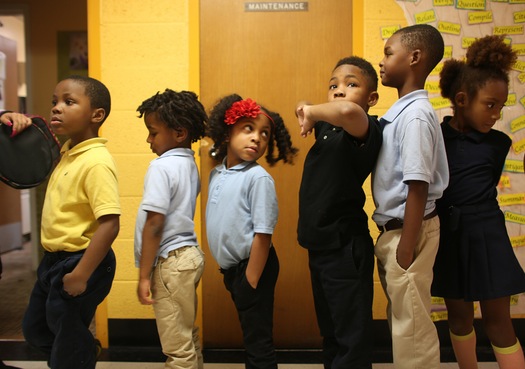Education Policy in the News: Minnesota Courts to Hear Lawsuit on School Segregation
Posted On February 26, 2016

The state of Minnesota, its governor, education commissioner and other ranking public officials are at the center of a class action lawsuit filed last November claiming that the growing concentration of people of color in Minneapolis and St. Paul public schools constitutes segregation and is in violation of state law.

Photo courtesy of Kyndell Harkness, Star Tribune.
The prosecution intends to make the case that the segregation of Minneapolis and St. Paul public schools violates a 1993 ruling by the Supreme Court of Minnesota, which affirms the right of all students to an equal education.
This follows a similar challenge brought against the state in 1995, which resulted in a ruling that forced the state to send 2,000 low-income and minority kindergarteners from the cities to wealthier, whiter suburban districts.
However, the prosecuting attorney claims, segregation is worse now than before the lawsuit and subsequent integration program. The percentage of hyper-segregated, apartheid schools (those with 90 percent or greater minority student population) has grown steadily in both Minneapolis and St. Paul. Test scores in the most minority-concentrated schools lag integrated schools by an average of 25 percentage points.
The prosecution is hopeful the lawsuit will force a state-led, metro-wide integration plan. Their strategy has proven successful in the past, most notably in the 1989 Connecticut lawsuit Sheff v. O’Neill. In Sheff, the Connecticut Supreme Court ruled that levels of racial segregation in public schools across the state violated the principle of equal opportunity, and in so doing violated the state’s laws. The court ordered Connecticut’s executive and legislative branches to ameliorate this injustice.
At a time of intense resegregation in our nation’s schools, and with an increasingly limited number of options for legal redress, it is worthwhile to follow developments such as this that seek new and creative ways to promote racial integration.
“This is huge,” said Century Foundation Senior Fellow and long-time education expert Richard Kahlenberg of the Minnesota lawsuit, “you could potentially have 50 lawsuits on this issue.” And, along with that, a real shot at forcing states to take integration seriously.

